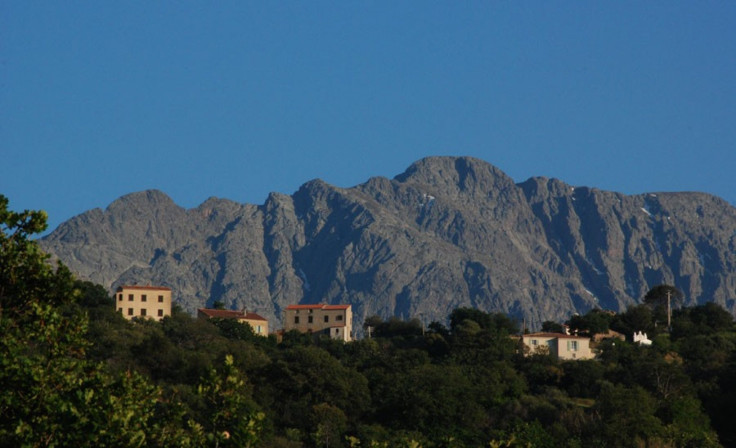Killer Beauty: Corsica, The Most Violent Place In Western Europe

Last week, Manuel Valls, the French interior minister arrived for a two-day visit to the Mediterranean isle of Corsica, a region of France long ignored by the Paris government. It was his third trip to the pristine mountainous island, nicknamed the “Isle of Beauty,” in less than a year – this time, he came to sign the third tranche of a financial project designed to help Corsica with its structural and environmental development projects.
However, Valls’ presence did not make too many proud Corsicans happy. The Corsican National Liberation Front (FLNC), a separatist organization which has perpetrated dozens of attacks last year, threatened more violence against the state that has ruled the island since 1768. “The French State needs to realize the disastrous effect in its management of Corsica for the last two centuries and a half or it will continue to destroy our people,” FLNC said in a statement. “In that case, we will take up the arms, so France can recognize our national rights.”
Valls also managed to offend Corsicans who are not members nor supporters of the FLNC by first rejecting the acceptance of the Corsican tongue as an official language equal to French (something Corsican nationalists have long agitated for). Then he made a reference to Corsica’s organized crime gangs by claiming that “violence is rooted in the island’s culture.” Valls later apologized for that gaffe by insisting that he was referring only to Mafiosi on the island, not the regular inhabitants.
Valls held his ground in the face of FLNC threats, saying that his government has adopted a “zero tolerance” policy with respect to organized crime and violence. But Valls may actually be onto something – for, in stark contrast to the immense natural beauty of Corsica, the island is plagued by violent crime committed by organized gangsters (some of whom are connected to nationalists) who are heavily engaged in protection rackets and other illegal activities that have had a profound impact on the island’s construction industry, property development and infrastructure endeavors.
Accompanying the shadow of mob is, of course, bloodshed and murder. On an island of only 310,000 people, Corsica has already recorded 11 homicides – a 40 percent spike over the year-ago period – meaning this unspoiled island paradise has a higher murder rate than anywhere else in western Europe, including the mean inner-city streets of Naples or London. The Corsican homicide rate is 41 times higher than the overall rate found on mainland France, according to Le Nouvel Observateur, a weekly French newsmagazine.
The latest victim of Corsica’s endemic killing was Francois Masini, 48, who was found dead on May 31, behind the wheel of his car with multiple gunshots to the head and torso. He was a well-known figure to the police and was allegedly part of the Corsican underworld. But, as with most killings in Corsica, no one saw anything and no one knows anything -- Masini’s murder will likely never be solved as the tradition of “omerta,” absolute silence and noncooperation with the authorities have a powerful hold on the inhabitants. Murders on Corsica are frequently the result of feuds between rival criminal gangs or the nationalists themselves (while they are not attacking mainland French targets). They often resort to bomb attacks, assaults and extortion, or, sometimes, murder. There are reportedly many gangs on Corsica, mostly small and loosely organized; sometimes they even adopt the name of the local bar they patronize.
Still, The FLNC is the most prominent such “criminal” organization in Corsica – founded in the mid-1970s as a separatist movement, the group has attacked and bombed mainland targets for decades. This “war” against Paris culminated in February 1998, when Corsica’s Prefect and the highest French representative on the island, Claude Erignac, was assassinated by Yvan Colonna, a Corsican nationalist will close links to the FLNC.
Last February, during a ceremony commemorating the 15th anniversary of Erignac’s assassination, Valls himself reasserted his government’s determination to make Corsica a place free of any violence and one that is “inherently French.” “Corsica is France and it will never change,” he said at the time.
Valls will likely keep a close eye on things in Corsica at the end of this month, when the island will host the 100th edition of the Tour de France bicycle race for the first time in history – under extremely tight security no doubt.
© Copyright IBTimes 2024. All rights reserved.








